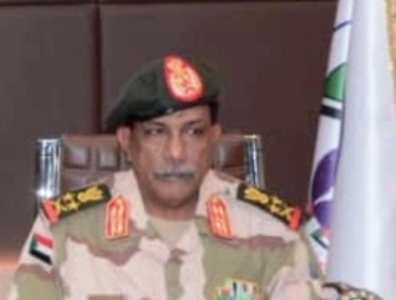Sudan’s intelligence chief resigns after bloody mutiny
January 15, 2020 (KHARTOUM) – Sudan’s intelligence chief Abu Bakr Damplab has resigned on Wednesday, after coming under fire following a bloody mutiny in by elements of his agency that resulted in the death of six people.

Six people including four military personnel and two civilians were killed during the confrontation between the rebellious units and the government forces.
The expected resignation of Damplab was announced by the President of the Sovereign Council, Abdel Fattah al-Burhan during an interview with the Sudan TV about the mutiny.
“He notified me of his resignation by phone and asked him to submit a written resignation,” al-Burhan said before to add “So now it is under consideration”.
Damplb had been appointed at the head of the intelligence agency two days after the al-Bashir ouster and the resignation of Salah Gosh.
Mohamed Hamdan Daglo “Hemetti” a leading member of the Sovereign Council on Tuesday publically accused Damplab of negligence in his dealings with the issue of the Operations Department of the former National Intelligence and Security Services (NISS).
Hemetti said he discussed with Damplab security reports about some movements within this group and contacts with other people and warned him against a possible rebellion.
He, also, accused the former NISS chief Salah Gosh of manipulating these elements to carry out a coup against the government.
Al-Burhan said they have formed an investigation committee to determine the cause of this mutiny and the people who stand behind it.
“We are awaiting the results of the investigation to determine who is behind the events, who is planning, who instigated and who carried out. We will judge whoever caused the incidents, whether the shooting or closing the streets.”
Speaking about Gosh, he said that the former NISS chief considered this force and his creation and he gave them particular attention.
But he stopped short from criticising or accusing him of planning the mutiny.
The NISS’s Operations Department was dissolved in line with the Constitutional Declaration which provided to reform the security sector and to separate between the intelligence and security services.
The 13.000 military personnel department was equipped with modern weapons and had many advantages. They were designed and trained to protect the regime and the strategic installations in the country.
Its units were used in the bloody attack against the pro-democracy sit-in on 3 June 2019. Also, some of its officers were detached to train and lead the units of the Rapid Support Forces.
(ST)
